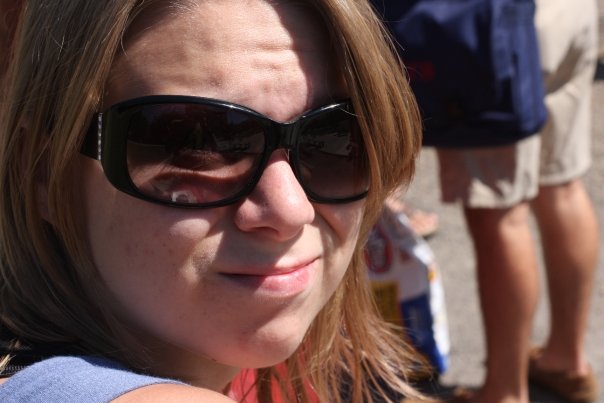Wednesday, February 25, 2009
15 White Girls in a Mini-Bus Taxi. And Orphans.
Wednesday, February 18, 2009
Jungle Monkeys.
Thursday, February 12, 2009
Adventure!
Wednesday, February 11, 2009
Tuesday, February 10, 2009
Class and Choice: The Elephant in the Room
“What is privilege but multiple choices?”
–Zed McGladdery, SIT Community Health Program Director
I’m staying in a lower class area called a township, all black government owned projects remaining from apartheid. Staying here has made me realize what incredible privilege I have been raised in, what powerful circumstances everyone in America lives in. Even the color of my skin means that because of the history of this country, I am granted more reverence and more respect, whether or not I ask for it.
This weekend on the phone my mother asked me how it felt to be a minority. She was surprised when I answered, “Guilty.” When I got to my homestay, my bag took up the entire path on one side of the bed. “So much stuff!” my new mama said. I unpacked, placing my name brand shampoo and my name brand face wash on the tub, which had socks drying on the washtub inside it. I placed my soap, exfoliating with a small dove carved in the surface, beside the generic green bar. I was so thankful that at least their toothpaste was name brand to ease my mounting guilt.
Before I left home, my sister and I had been whining that the hot water heater had an element out and only provided hot water for the first 5 minutes of a shower. On arriving in Cato Manor, I did not have a shower at all, much less hot water. We don’t even use half of my house in the United States, whereas the living room here is used for basically everything, and is, well, small, at least by my previously held standards. Dinner is very heavy in starches and fats, and fruit and vegetables are sparse. The ones that are around are typically only served to me. The meal that is prepared is eaten for every meal of the day (though lunch is generally sparse) until it is finished several days later. I am served Cornflakes and specially prepared jam and butter sandwiches. Even within my home, my family treats me as a special guest.
I realize now how much stuff I have. I thought I only brought the essentials with me. A week’s worth of clothes, 3 pairs of shoes, various cosmetics and toiletries, 2 cameras (one is for my photo essay later on), an iPod, 3 books, 2 journals, some outdoor things… Granted, I have used most of these things, but I could also live without most of them. They are comforts that I have learned to see as necessary to life, but many of them, such as books, never mind cameras or an iPod, people in Cato Manor have never had. My first night, my mama offered that I could watch TV after she went to bed. When I replied that I would read, she said, “Oh, always good to keep learning.” Education is held in high esteem, but book are too expensive to afford.
That we have the choice to educate ourselves, our children, especially at the university level, is remarkable. Many of us can choose to study without worrying about having to send money home to support the family. I know probably one girl my age in America with a child. The fact that I can pick up an leave the United States, have the money and the freedom to just wander the globe, speaks to my incredible privilege. Mama has no choice but to work, and even still she couldn't afford a gift for her daughter's 13th birthday last week.
Though I am living within the lower class homestay environment, everyday I detach for a time being in class, situated in a higher income area. We have our classes in a house in an area that was classified as “white” under apartheid. There we have showers, fruit, vegetables, air conditioning, a pool. All twenty-two students type away on our laptops. We have this space to be “rich.” I’m still wrestling with the ethics of this situation. Should we have fruit, cameras, laptops, a spacious area and time to debate health policy, when as a whole the people of Cato Manor do not? Of course it’s impossible to totally balance the playing field, but there are some steps we can take to not be so spoiled, as well as some things we can do to improve the situation of people like our homestay families (for example, in access to health care). In the meantime, people on both ends of the wealth spectrum are taking time to appreciate and learn from one another. As cheesy as it sounds, it’s pretty comforting.
Monday, February 9, 2009
Photos!




